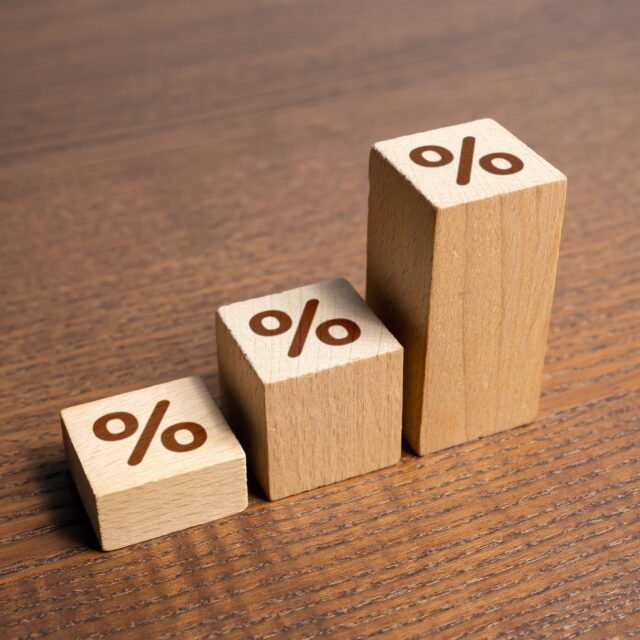Listening to the markets
On Monday, Toby Young came up with an interesting, if flawed, calculation:
On Monday, Toby Young came up with an interesting, if flawed, calculation:
RBS shares fell 2.5% this morning, partly on the back of Stephen Hester’s decision to waive his bonus… investors are clearly worried that from now on RBS will be subject to frequent political meddling and will no longer be run as a commercial business. What this means is that, thanks in part to the populist posturing of Ed Miliband and Chuka Umunna, as well as their anti-capitalist cheerleaders in the media, the bank is now worth £330m less than it was at close of play on Friday evening.”
This was instantly rebutted by Evan Davis, who described this claim (on twitter, in response to someone else making the same point) as “palpable rubbish. Barclays has gone down – and Lloyds.” Indeed, over the day, on what was a bad day for most European stock exchanges, and in particular bank shares, Barclays shares fell by 4.2 percent, Lloyds by 4.1 percent, HSBC by 2.5% and RBS 3.5%. So RBS was precisely in line with the average for the UK big banks. French banks did worse, with BNP and SocGen both falling more than 6%.
But my point is not that Toby Young is talking rubbish, since Evan has already pointed this out. A more interesting point is that in fact Young’s methodology, done right, as per Evan, is entirely sensible, and well-established in the finance literature, where it is known as an “event study”. You assess the financial impact of a specific piece of news by looking at its impact on the share price of company(ies) who might be expected to benefit (or lose), and comparing that to others in the sector or the market as a whole. So the episode here is indeed a nice neat event study; and, having done this right, we can confirm that the market’s best estimate of the impact on RBS’s expected future profits is zero, more or less.
So, if Mr Young was being intellectually consistent, you might expect him to say:
“It is clear that, as far as we can tell, markets attach no weight at all to any possible damage to RBS resulting from the non-payment of Mr Hester’s bonus. Perhaps they don’t think he’s better than whoever would replace him. Or perhaps they don’t think bonuses motivate chief executives. Or perhaps they don’t think chief executives matter at all. Difficult to tell; all these explanations are consistent with observed market behaviour. But any way you look at it, the bonus wasn’t buying us anything much.”
He hasn’t said this yet, and this raises a much broader question. Why do people who claim to believe that markets work pretty well refuse to pay attention when market prices don’t coincide with their own prior beliefs?
This is particularly obvious in relation to fiscal policy, debt and deficits. Alan Greenspan, for example, wrote:
“Despite the surge in federal debt to the public during the past 18 months—to $8.6 trillion from $5.5 trillion—inflation and long-term interest rates, the typical symptoms of fiscal excess, have remained remarkably subdued. This is regrettable, because it is fostering a sense of complacency that can have dire consequences... Don’t be fooled by today’s low interest rates. The government could very quickly discover the limits of its borrowing capacity.”
That was in June 2010. Well, if you took his advice, and declined to be “fooled”, you’d have lost your shirt. Since then – and despite Standard and Poor’s downgrade of US debt – markets have pushed US Treasury yields to unprecedentedly low levels. As Paul Krugman puts it “the invisible bond vigilantes have resumed their invisible attack.” Funny, but Krugman’s serious point is not the crude anti-speculator/anti-market one that government shouldn’t pay any attention to market prices and investor behaviour. It’s quite the opposite – that government should pay attention to what markets prices actually are, and what investors actually do, rather than what people like Greenspan and Standard and Poors say about what markets should be doing.
Perhaps an even more egregious case is that of the Treasury Minister Lord Sassoon (although in fairness he was just parroting a standard line) who said, only in March last year:
“Britain’s AAA credit rating was under threat…George Osborne had no choice but to come up with a comprehensive deficit reduction plan—not to merely halve the deficit over four years, but eliminate it.”
Well, in November, it turned out that George Osborne “had no choice” but to come up with a new plan – not (merely) to eliminate the deficit over four years, but to cut in half. That’s the new trajectory for public borrowing as of the Autumn Statement. And market reaction? Panic? Downgrades? Spiralling interest rates? Er, no; UK long-term interest rates continue to plumb historic depths. As Evan might put it, it turns out that Lord Sassoon was talking “palpable rubbish”.
So we find ourselves in the absurd position where those who argue most strongly for us to worry about market reaction to any change of policy are those who pay least attention to how markets actually react in practice. As Martin Wolf puts it:
What is to be done? To find an answer, listen to the markets. They are saying: borrow and spend, please. Yet those who profess faith in the magic of the markets are most determined to ignore the cry.
More broadly, while it may be too much to ask for intellectual consistency on the part of politicians, it is not unreasonable to expect it from economists and commentators. If you believe in markets (and, broadly speaking, I do) you have to accept that sometimes they get it right and you get it wrong.

















